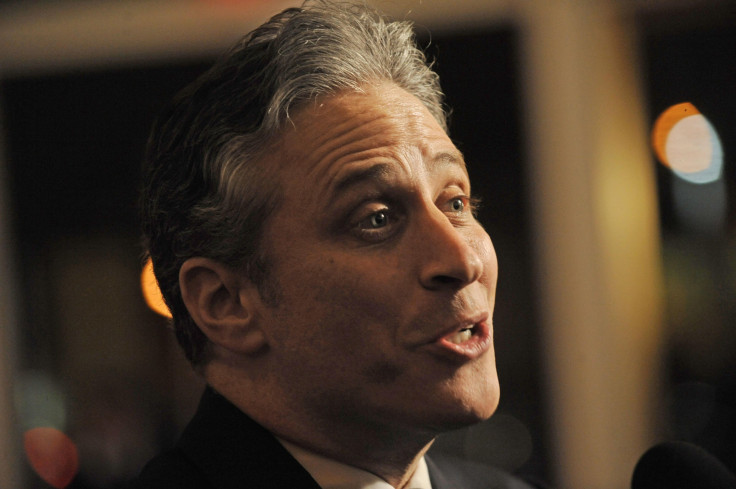Jon Stewart’s ‘Fake’ News Legacy: Good Or Bad For American Political Discourse?

If fans of “The Daily Show” have their way, Jon Stewart’s next move should be obvious: He’s going to make a run for the White House, and he might even have a shot. At last check, the “Jon Stewart for President Facebook” page had more than 15,000 fans, and there are “Jon Stewart 2016” petitions floating all over the Internet.
But Stewart, who on Tuesday announced he would be leaving Comedy Central’s satirical news program after more than 15 years at the helm, never showed much of an interest in politics -- not real politics, anyway. The 52-year-old comedy legend pioneered the now-ubiquitous genre of “fake” news populated by the likes of Stephen Colbert, John Oliver and Larry Wilmore. In 1999, Stewart took the reins of the then-struggling “Daily Show” from Craig Kilborn and turned what could have been a minor TV footnote into a major cultural staple, changing not only the direction of comedy and journalism but political discourse itself.
News programs had given way to infotainment long before Stewart came on the scene, but in building an entertainment show on a foundation of solid reporting and factual information, Stewart was uniquely positioned to hold an unflinching mirror up to the establishment, laying bare the decaying journalistic values of traditional American television news. The more outrageous and sensational Fox News or MSNBC became, the more fodder Stewart had for his show -- or an occasional “Restore Sanity” rally, should the mood strike him.
When We Become What We Mock
A famous Time magazine poll in 2009 found Stewart was America’s most trusted newscaster, a particularly poignant feat given that, at the time, Walter Cronkite had just passed away. And when Web 2.0 and social media in the 2010s further decimated the authority and necessity of the Old Guard, Stewart -- with his ripe-for-virality comedic tirades -- only seemed to flourish. As the comedian prepares for his exit later this year, it’s no small irony that he will leave his post a more trusted source of news than NBC’s Brian Williams, one of the biggest names in “real” news, who was suspended for six months on Tuesday amid a brewing scandal surrounding his alleged embellishments.
To Stewart’s critics, mostly on the right, “The Daily Show” and its trademark brand of subversion are exactly what American public discourse doesn’t need. Protected by the impenetrable faux-caster label, Stewart enjoys all the benefits of celebrity journalism but none of the accountability. He is, to some, a crafty propagandist, a cynic who uses the guise of political exposition for the sake of humor and sacrifices true public engagement in the process.
“Stewart’s going for the laugh,” Fox News host Bill O’Reilly said of his coverage of the Ferguson riots last year. “He doesn’t really care if it’s true or not.”
“I have argued that his type of humor undermines American politics by turning everything into a joke and a source of mockery,” Bob Samuels, president of the University Council, wrote in the Huffington Post. “My argument is not that we need to respect or idealize our political officials; rather, I believe that by constantly laughing at public figures, we feed a libertarian consensus.”
But such criticisms miss one of the key reasons “The Daily Show” had so much authority to begin with: It had the goods. Stewart employed not just a circle of comedy writers but a crack team of researchers to ensure that the political implications born out of its comedy skits were rock solid.
And that does, on occasion, lead to real action. In 2010, when Senate Republicans blocked a bill that would have provided $7.4 billion in medical benefits to 9/11 responders, Stewart went on a tear, calling each of them out by name and blasting what he saw as “an outrageous abdication of our responsibility.” Other news networks followed his lead, including Fox News, which called the lawmakers “shameful.” Within a few days, the bill became law.
In a follow-up story in the New York Times, Bill Carter and Brian Stelter cited Stewart’s role in the bill’s passage, asking if he could, in fact, be a “modern-day equivalent of Edward R. Murrow.” Perhaps he is, only funnier.
Christopher Zara is a senior writer who covers media and culture. News tips? Email me here. Follow me on Twitter @christopherzara.
© Copyright IBTimes 2024. All rights reserved.












